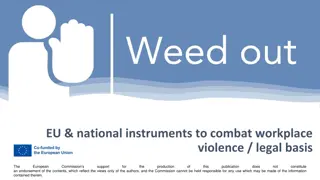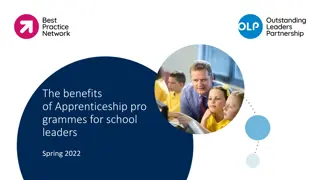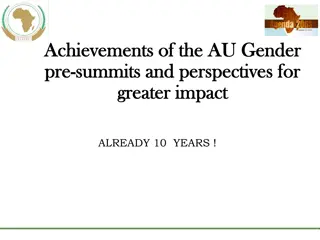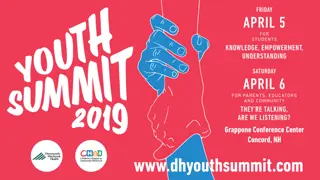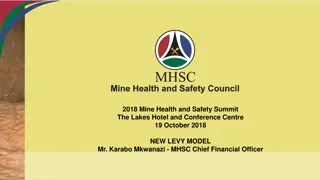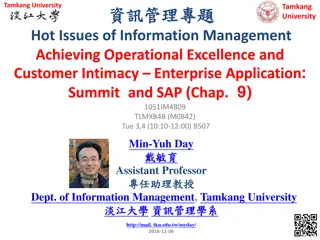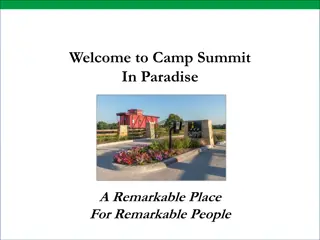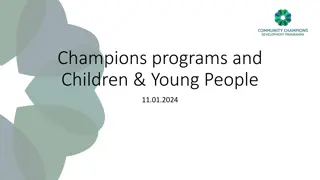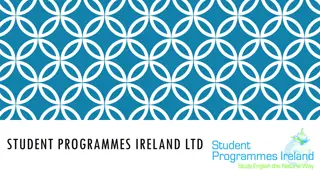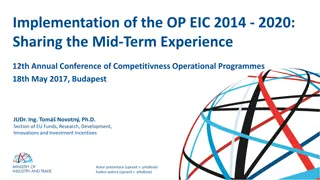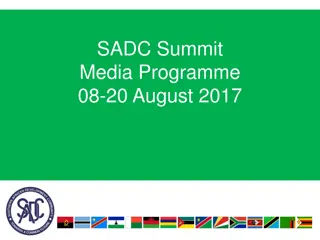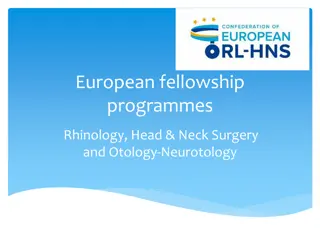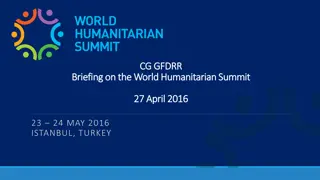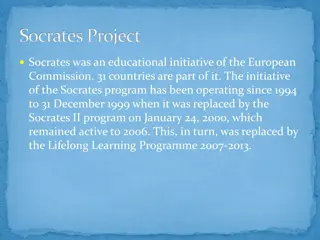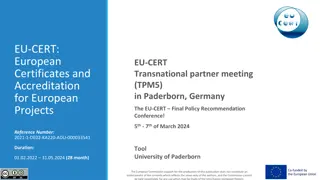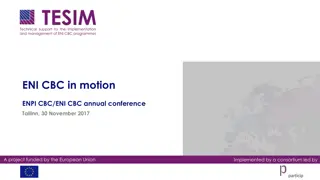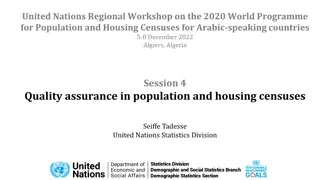European Commission Summit on Short Learning Programmes
The memorandum of understanding between EADTU and the European Commission highlights the significance of Short Learning Programmes (SLPs) in addressing the need for flexible higher education in Europe. SLPs cater to the continuous professional development and skills enhancement required for innovation and employability. The objectives include establishing a common framework, promoting flexible SLP development, and fostering collaboration between European universities to enrich SLP content and improve educational quality.
Download Presentation

Please find below an Image/Link to download the presentation.
The content on the website is provided AS IS for your information and personal use only. It may not be sold, licensed, or shared on other websites without obtaining consent from the author.If you encounter any issues during the download, it is possible that the publisher has removed the file from their server.
You are allowed to download the files provided on this website for personal or commercial use, subject to the condition that they are used lawfully. All files are the property of their respective owners.
The content on the website is provided AS IS for your information and personal use only. It may not be sold, licensed, or shared on other websites without obtaining consent from the author.
E N D
Presentation Transcript
Short Learning Programmes Memorandum of Understanding EADTU-European Commission Summit 15 April 2016 Brussels 15 April 2016 Short Learning Programmes 1
NEEDS FOR SHORT LEARNING PROGRAMMES 15 April 2016 Short Learning Programmes 2
Needs Short Learning Programmes Short Learning Programmes (SLPs) respond to the need for flexible higher education in Europe, especially with regard to continuous professional development and skills development for innovation and employability. Hence, SLPs are entirely part of the Skills Agenda to be launched by the European Commission. SLPs also respond to the demand and life conditions of large numbers of students aged 25+ for a short study period in order to obtain an award, a certificate or a diploma at diverse qualification levels (EQF from 4 to 8: foundation, bachelor, master and doctoral level). 15 April 2016 Short Learning Programmes 3
OBJECTIVES MEMORANDUM OF UNDERSTANDING 15 April 2016 Short Learning Programmes 4
Objectives of the MoU To work towards a common framework for the development of SLPs at European open and distance teaching universities; To promote the development of flexible SLPs as a response to the diversity of needs in society and as an opportunity for students to fit study to their profile and to the study-time available to them; To support and encourage the collaboration and mobility between European open and distance teaching universities in order to enrich the content of SLPs, to improve their educational quality and to raise their European outreach, scale and cost- effectiveness 15 April 2016 Short Learning Programmes 5
COLLABORATION 15 April 2016 Short Learning Programmes 6
Collaboration between universties The mutual recognition of modules or courses, leading to exemptions when students register for SLPs and subsequently degree programmes at one of the collaborating universities; The development of a joint SLP-programme with a joint award, certificate or diploma with integrated mobility between partner universities.; The creation of (alternative) tracks in joint bachelor or master programmes. 15 April 2016 Short Learning Programmes 7
STRUCTURE OF SLPS 15 April 2016 Short Learning Programmes 8
Structure SLPs may be of different sizes (number of ECTS points) and at different qualification levels in compliance with the European Qualification Framework and the respective national Qualification Frameworks Every unit has a credit value and a qualification or difficulty level (from 4 to 8: foundation, bachelor, master and doctoral level). The title of each SLP would contain details of the size (award/certificate/diploma), level of difficulty (eg. level 4 to level 8) and general content of the qualification. Where possible and relevant, the SLP would be elaborated as a stepping stone towards a full degree. 15 April 2016 Short Learning Programmes 9
New Qualifications and Credit Framework (QCF) in the UK 15 April 2016 Short Learning Programmes 10
THE NEW PEDAGOGICAL LANDSCAPE: THREE AREAS OF PROVISION 15 April 2016 Short Learning Programmes 11
The complex pedagogical landscape Blended and online CPD, SLP s and non-degree education Transnational National Online open education through OERs and MOOCs Blended degree education: three cycles 15 April 2016 Short Learning Programmes 12
Business models: a holistic approach In the public domain, open and for free, services paid Non- regulated, diverse business models Regulated, fee paying 15 April 2016 Short Learning Programmes 13



